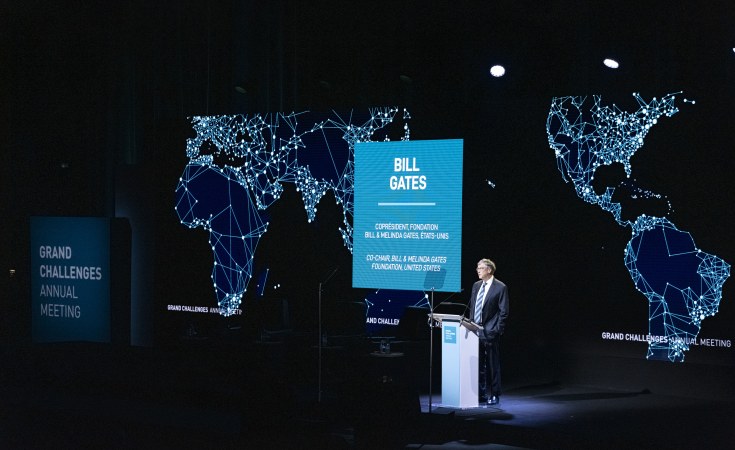The foundation said there are existing and emerging solutions that will improve and save lives despite challenges.
The Bill & Melinda Gates Foundation has said as small as 0.5 per cent of the wealth of billionaires around the world can save millions of lives if invested in meaningful philanthropism.
The organisation said this in its recent call for increased philanthropism among global rich individuals and organisations to advance solutions to improve lives.
Giving a breakdown in the latest 2024 Gates Foundation annual newsletter, the CEO of the foundation, Mark Suzman, said donations from billionaires would unlock $61 billion, which is enough to make impacts and "still have $49 billion left over."
According to Mr Suzman, with just $1 billion in additional giving, philanthropists could save the lives of 2 million additional mothers and babies by 2030, while $4 billion could help half a billion smallholder farmers become more climate resilient and reduce greenhouse gas emissions from agriculture by gigaton a year by 2030.
He added that with a little more than $7 billion, they could get vaccines to 300 million people, preventing at least 7 million deaths.
The Forbes' 37th annual 2023 World's Billionaires List recently revealed that the net worth of the world's 2,640 billionaires is at least $12.2 trillion.
However, Mr Suzman urged philanthropists to give more to meet the unprecedented challenges nations across the globe face in combating poverty, eradicating disease, and fighting inequality.
Challenges
According to Mr Suzman, hundreds of millions of people live on less than $2.15 a day, "on the same planet where, during the first 24 months of the pandemic, billionaires' wealth rose more than it had in the 23 years prior."
He added that "it's hard to grapple with the inequities," as women die in childbirth who could have been saved with basic, low-cost interventions - simply because of their race, income, or where they happen to be born.
Despite these challenges, Mr Suzman said there are existing and emerging solutions that will improve and save lives.
He said innovative digital tools can help more women access economic opportunity; new interventions involving the gut microbiome can help solve malnutrition; and agricultural innovations can help farmers increase production, even in the face of extreme weather.
"But these solutions need support, or they'll wind up merely as wasted potential. The sooner that support comes, the more people we can help today--and the better off we'll leave the next generation," he said.
Fight against infectious disease
In the newsletter, Mr Suzman cited examples of how governments and nongovernmental organisations have made incredible advances in the fight against infectious diseases in the last few decades.
He said: "Wild poliovirus once paralysed 7,000 children a week. In 2023, that number was only 12 children--over the entire year. That progress was possible because of brilliant innovators who discovered breakthroughs and frontline heroes who made sure that solutions reached children, even in the most remote parts of the world.
"And so much of that was possible because of philanthropy: Rotary International, our foundation, and other organisations dedicated to a future where polio is a thing of the past."
According to him, Gavi, the Vaccine Alliance, has facilitated the immunisation of more than 1 billion children and the Global Fund has saved 59 million lives from HIV, TB, and malaria.
He added that the Carter Center and its partners are on the verge of making Guinea worm disease, a debilitating parasitic infection, the second human disease in history to be wiped off the face of the earth.
Funding
Mr Suzman also noted that the foundation is stepping up its funding support, as its board of trustees recently approved a 2024 budget of $8.6 billion.
He added that the board committed to increasing the annual payout to $9 billion by 2026.
"We're committed to spending down our endowment after our founders' deaths because we're focused on solving urgent problems now, and helping set up systems that will outlive us," he noted.
Bill & Melinda Gates Foundation works to help all people live healthy, productive lives. In developing countries, it focuses on improving people's health and giving them the chance to lift themselves out of hunger and extreme poverty.
In the United States, it seeks to ensure that all people--especially those with the fewest resources--have access to the opportunities they need to succeed in school and life. Based in Seattle, Washington, the foundation is led by CEO Mark Suzman, under the direction of Co-chairs Bill Gates and Melinda French Gates, and a board of trustees.


